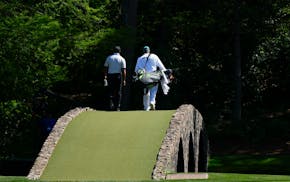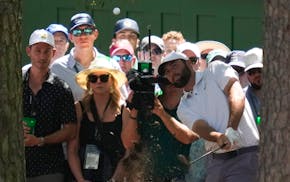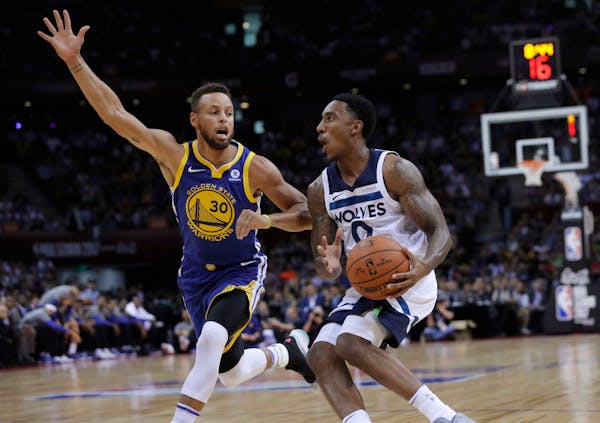New players often are described as pieces of a puzzle. That isn't quite right. Puzzles are two-dimensional and static. In sports, adding a key player is more like trying to inject a sprinting racehorse with adrenaline while rounding the backstretch, a delicate, maybe even dangerous procedure.
Minnesotans know this. Herschel Walker was supposed to become the last piece of a simplistic puzzle. He got everyone fired. The Kevin Garnett trade was supposed to rebuild the Wolves. Instead it cratered a struggling franchise for an extra decade.
The Johan Santana trade yielded too little, and many of the best Minnesota trades of the past few decades landed then-underappreciated talents — Joe Nathan, Shannon Stewart, Devan Dubnyk — but not established stars.
The Timberwolves begin their most promising season in more than a dozen years Wednesday night in San Antonio against one of the gold standards of sports intelligence, and they will be the team in the building that has made the last, best move.
Their trade for Jimmy Butler gives the Wolves the best roster in franchise history and could well prove to be the best trade by a Minnesota team since the Vikings landed Jared Allen. And Allen, unlike Butler, couldn't play two ways or lead an offense.
The last time the Wolves added a quality guard to a team that looked ready to win, Sam Cassell took them to the Western Conference finals. And Butler is a better player than Cassell ever was.
It's hard to imagine a more ideal, realistic addition to the Wolves' roster. Butler is the rare bespoke addition. The franchise desperately needed mature talent, leadership, a Tom Thibodeau translator, defense, mental toughness, clutch shooting and charisma, and they got it all in Butler, a star in his prime who seemed unbowed by the Wolves' embarrassing history or the prospect of Minnesota winters.
"He's been terrific,'' Thibodeau said. "Not only in the games but in practice every day, both ends of the floor, that's what makes him so good. And he's a big-shot maker. I don't know how many clutch shots he's made in scrimmages.
"But it's more his all-around play. I think he understands how important it is to play defense. He's leading in that way, and he's making our young guys understand how important that is as well.''
Thibodeau probably would speak highly of Butler even if that wasn't the case, because Thibodeau's reputation is tied to Butler's success. Thibodeau inherited the most talented young team in the league and decided to trade the spectacular Zach LaVine to avoid using the term "learning process'' 8,000 times this season.
Thibodeau needs Butler. Luckily for him, there is no reason to doubt anything nice he says about his new leader. "I'm not sure it's measurable, to be honest with you,'' said swingman Jamal Crawford, asked about Butler's influence. "He does so much offensively, defensively and in the locker room, being the bridge as far as players who haven't played with Thibs before.
"He knows exactly the terminology and what Thibs wants. It makes our jobs a lot easier.
"It's an unbelievable culture.''
Cohesiveness is the most underrated aspect of the NBA. LeBron James, Dwyane Wade and Chris Bosh didn't win a title their first year together in Miami. The Wolves' defense likely wasn't transformed by one offseason, and the offense will have to figure out how to share big shots between Butler, Andrew Wiggins and Karl-Anthony Towns.
It would be rash to suggest that this team immediately will overtake the 2003-04 Wolves as the best in franchise history. That team won 58 games behind Kevin Garnett at his best, with Cassell taking the big shots and Latrell Sprewell playing admirable defense.
A reasonable goal for Butler's first year with the Wolves would be to approach 50 victories, make the playoffs and look formidable in the postseason.
"A success for me?'' Butler said. "I want to win a championship."

Souhan: Why Tiger Woods should keep swinging
Souhan: Scheffler wins Masters again, shows what makes him special
Morikawa falters in final round at Masters

Keeping up with the Joneses who helped design Augusta National's classic back nine


